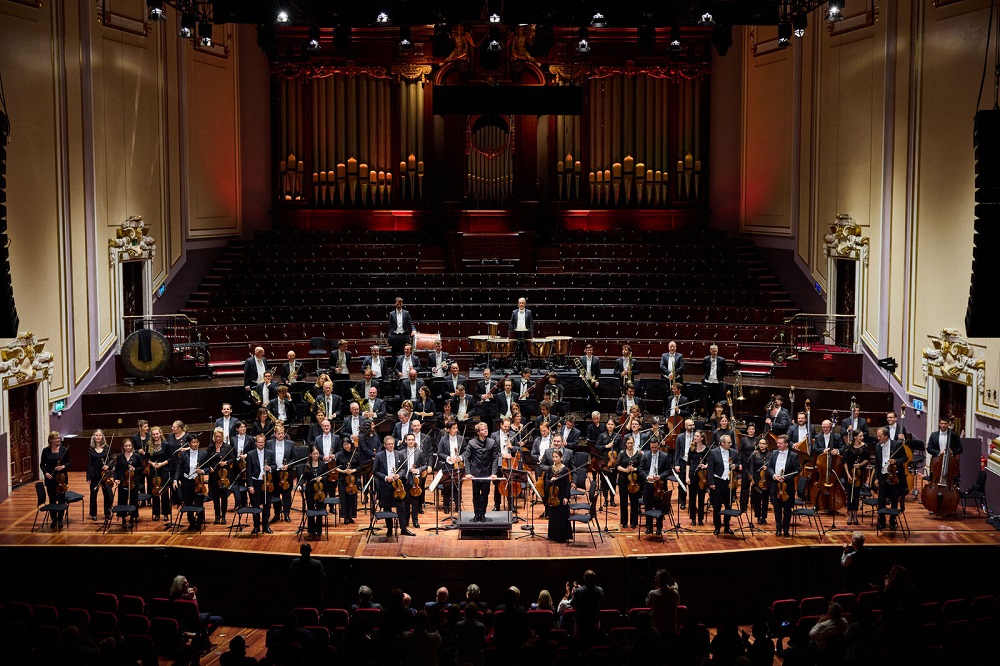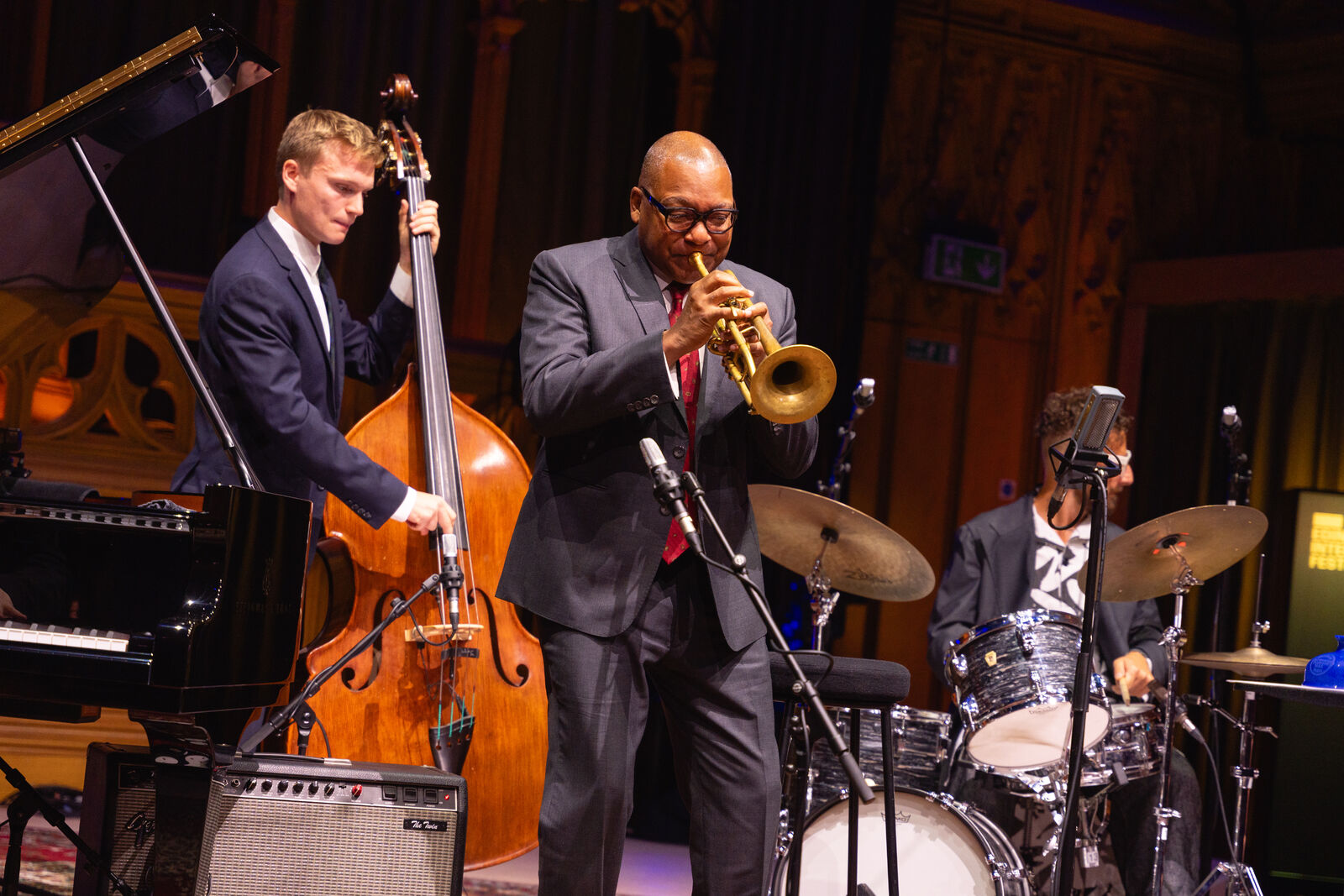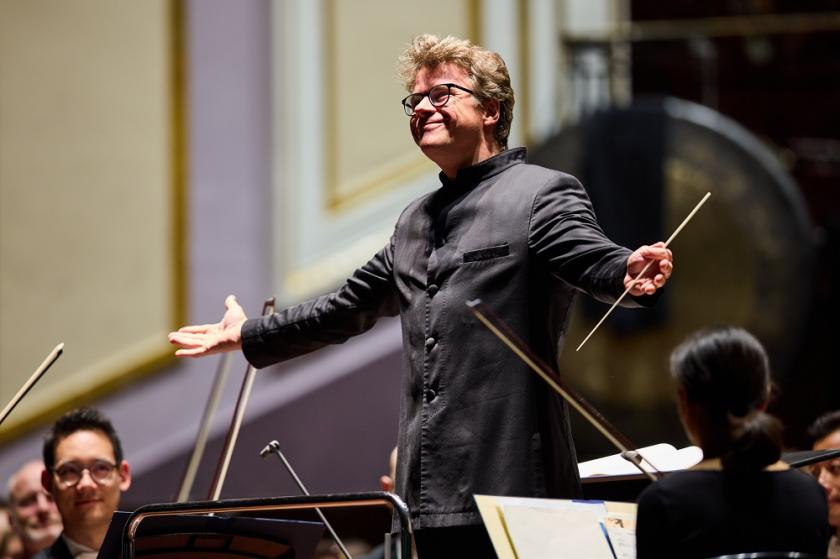When you’re running a three-concert residency, you can afford to take a few repertoire risks, to programme a few things that might be close to your heart but which won’t pack in the punters.
That must be the reason why the Bamberg Symphony Orchestra’s EIF residency included Hans Rott’s First Symphony in its first night and in this, its last, Dvořák’s Te Deum and Josef Suk’s Asrael symphony, works close to Chief Conductor Jakub Hrůša’s heart but which don’t resonate so much with British audiences.
Predictably, therefore, the Usher Hall was only half full for both of those concerts (their middle concert, featuring Dvořák’s "New World" Symphony, was a sellout), but that’s a loss for those who didn’t show because the music-making was golden. Suk’s Asrael Symphony, inspired by the death of his wife and of Dvořák, her father, is rarely played in this country, but its meditation on mortality and eternity cuts straight to the heart in a performance like this. The Bamberg strings brought dignity and depth to everything they played, whether that was fear, consolation or the sheer bite of the struggle between life and death. The whole performance, shaped by a conductor who understands the piece deeply, was always on the verge of transcendence, and regularly achieved it, nowhere more so than in the fourth movement, Suk’s memorial to his dead wife, a sensationally gorgeous collage of sound, subtly constructed and utterly beguiling here.  Dvořák’s Te Deum is neither subtle nor beguiling, but at least here it was fun. The orchestral playing conveyed a dignity on Dvořák’s rum-ti-tum textures that they perhaps didn’t deserve, but the Edinburgh Festival Chorus sounded like they were having a whale of a time, and the soloists brought some star quality too. Baritone Adam Plachetka had the intensity and focus of a Gurnemanz on vacation, while soprano Kateřina Kněžíková was more like an off duty Sieglinde; light, bright and airborne.
Dvořák’s Te Deum is neither subtle nor beguiling, but at least here it was fun. The orchestral playing conveyed a dignity on Dvořák’s rum-ti-tum textures that they perhaps didn’t deserve, but the Edinburgh Festival Chorus sounded like they were having a whale of a time, and the soloists brought some star quality too. Baritone Adam Plachetka had the intensity and focus of a Gurnemanz on vacation, while soprano Kateřina Kněžíková was more like an off duty Sieglinde; light, bright and airborne.
Later that night, up the hill at the Hub, saw something completely different, the first of the EIF’s experiments in an intimate late-night concert where a mystery guest brings a hand-picked sequence of music and musicians to a crowd who don’t know what they’re paying for. The special guest to get the series rolling was none other than superstar trumpeter and composer Wynton Marsalis (pictured below with trio colleagues by Maxime Regin), who brought three collaborators and two special guests with him to play a dazzling sequence of jazz. Sometimes his selection was relaxed and easy, as befitted the late-night setting, sometimes it was lightning fast and impossible to pin down; but you always felt you were in the hands of a master.  Listening to Marsalis and his collaborators, the music seemed to form and re-form in patterns and spirals so fresh that if you blink you’d miss them; just as your ear gets a hold on one strand it disappears for ever and gets replaced by a whole new one, transformed into something else without you noticing. Only a few years ago an event like this in the International Festival would have been well-nigh unthinkable, with its unannounced billing and contemporary feel, but it’s a testament to Nicola Benedetti’s moves to transform the festival that it now feels par for the course. This was one of those events that it’s a privilege to witness.
Listening to Marsalis and his collaborators, the music seemed to form and re-form in patterns and spirals so fresh that if you blink you’d miss them; just as your ear gets a hold on one strand it disappears for ever and gets replaced by a whole new one, transformed into something else without you noticing. Only a few years ago an event like this in the International Festival would have been well-nigh unthinkable, with its unannounced billing and contemporary feel, but it’s a testament to Nicola Benedetti’s moves to transform the festival that it now feels par for the course. This was one of those events that it’s a privilege to witness.













Add comment